When it comes to choosing the right material for your kitchen countertops, two popular options often come to mind: concrete countertops and granite countertops. Each of these materials has its own unique set of advantages and disadvantages, making the decision a crucial one for any homeowner looking to upgrade their kitchen. Let’s explore the differences between concrete and granite countertops, considering factors such as durability, appearance, maintenance, cost, and customization. By the end of this comprehensive discussion, you’ll have a clearer understanding of which option is the best fit for your specific needs.
Durability and Longevity: Concrete countertops are known for their exceptional durability. When properly installed and sealed, they can last for many years without showing significant wear and tear. On the other hand, granite countertops are natural stones and are also highly durable. Granite is resistant to scratches and heat, making it a tough competitor against concrete in terms of longevity.
Appearance and Aesthetic Appeal: Concrete countertops offer a unique and customizable look. They can be stained and polished to achieve a wide range of colors and textures, making them a popular choice for those seeking a more industrial or modern appearance. Granite countertops, on the other hand, come in a variety of natural colors and patterns, bringing a touch of nature into your kitchen. The choice here depends largely on your taste and the overall style of your kitchen.
Maintenance and Cleaning: Granite countertops are relatively low-maintenance. They are easy to clean with just soap and water, and they are resistant to stains when properly sealed. Concrete countertops, on the other hand, require more regular maintenance, including resealing every few years to prevent staining. They are also more prone to chipping and cracking than granite.

Cost and Installation: In terms of cost, concrete countertops are generally more affordable than granite. The materials and labor for concrete countertops are often less expensive, making them an attractive option for those on a budget. Granite countertops, while more expensive, offer excellent value due to their durability and timeless beauty.
Customization and Design Flexibility: Concrete countertops shine in the customization department. You have the freedom to create unique shapes and designs, embed objects, and experiment with various textures and colors. Granite, while offering some variety in its natural patterns, lacks the same level of design flexibility as concrete.
Environmental Impact: Concrete countertops can be more environmentally friendly when using locally sourced materials and minimizing waste during the production process. On the other hand, granite countertops may involve more transportation and extraction costs, potentially having a higher environmental impact.

Resale Value: Granite countertops tend to add significant value to a home and are often considered a luxurious feature. Concrete countertops, while trendy and unique, may not have the same resale value impact.
Heat Resistance: Granite is highly heat-resistant, making it an excellent choice for areas near stovetops or ovens. Concrete countertops are also heat-resistant but may be prone to thermal shock if subjected to extreme temperature changes.
Installation Time: Concrete countertops are typically cast on-site, which can be a lengthy process. In contrast, granite countertops are pre-cut and only require installation, reducing the time it takes to complete the project.
Repairability: In the event of damage, granite countertops can be more challenging to repair, as matching the exact pattern and color of the stone can be difficult. Concrete countertops, on the other hand, can be easier to repair as the material can be patched and refinished.
Availability: Granite countertops are widely available and come in a variety of colors and patterns. Concrete countertops may be more limited in terms of availability, depending on your location and the expertise of local fabricators.
Overall Suitability: The choice between concrete and granite countertops ultimately depends on your specific needs and preferences. If you value customization, and a modern aesthetic, and are willing to invest in maintenance, concrete might be your choice. However, if you prefer a timeless, low-maintenance option with excellent durability, granite is likely the better fit for your kitchen.
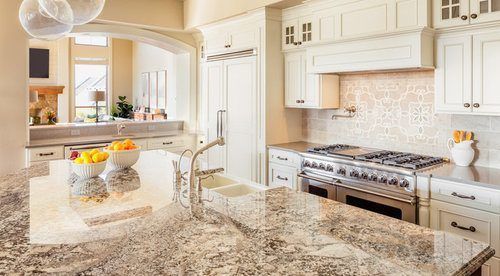
The decision between concrete and granite countertops is a matter of personal taste and priorities. Consider your budget, aesthetic preferences, and maintenance capabilities when making this important choice for your kitchen. Both materials have their strengths and weaknesses, so take your time in evaluating which one aligns best with your lifestyle and the overall design of your home.
Pros and Cons of Concrete Countertops CounterTop Guides
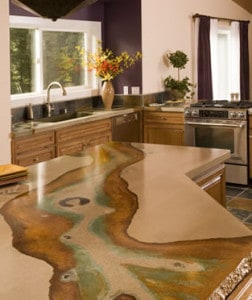
Concrete versus Granite Countertops: A Comparison – Granite ASAP
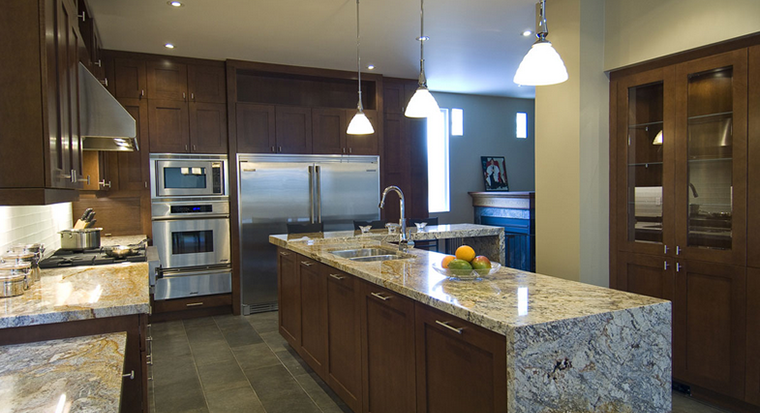
Concrete vs Granite Countertops: Whatu0027s the Difference?
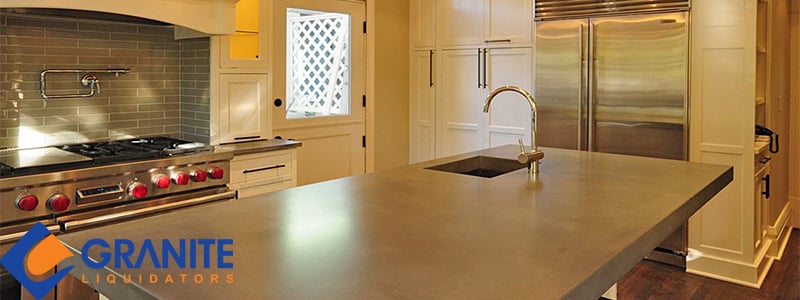
Granite vs Concrete Countertop Comparison

Granite vs Concrete Countertops – Pros, Cons, Comparisons and Costs
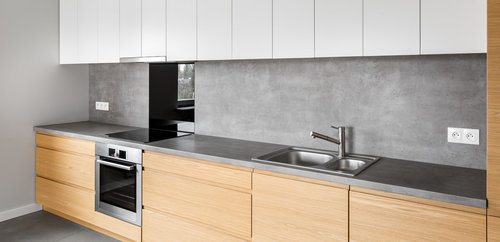
Related articles:
- Granite Countertop Overlay
- Stains On Granite Countertops
- Black Pearl Granite Countertops
- Black Matte Granite Countertop
- Black Granite Kitchen Countertops
- Cutting Granite Countertops DIY
- Gray Granite Countertops
- Blue Gray Granite Countertops
- Granite Countertops Wood Island
- Backsplash Ideas For Granite Countertops